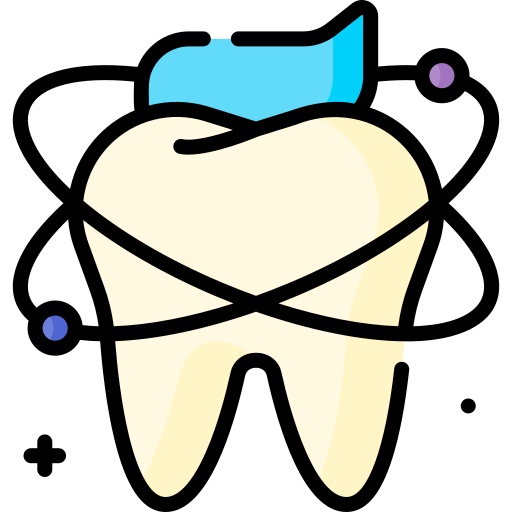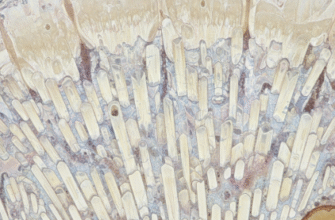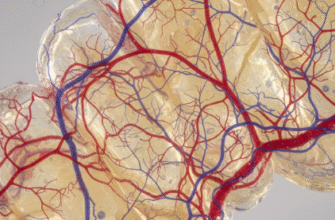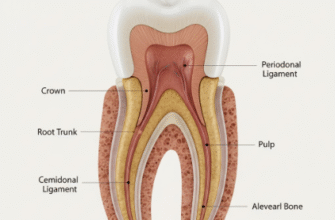Activated charcoal seems to be everywhere these days, doesn’t it? From the inky black swirls in your “detox” lemonade to the gritty texture in your toothpaste and the promise of purified pores in face masks. It’s been hailed as a miracle ingredient, a natural purifier, and a must-have in our quest for a cleaner, healthier lifestyle. The message often subtly (or not so subtly) implied is that incorporating it into your daily routine is a fantastic idea. But is this daily dalliance with the dark stuff really as benign as the wellness gurus and product labels suggest? It’s time to look past the trendy aesthetic and dig into the realities of daily activated charcoal use.
First off, what exactly is activated charcoal? It’s not the same stuff you find in your barbecue briquettes, thankfully. Activated charcoal is typically made from carbon-rich materials like wood, coconut shells, or peat, which are heated to very high temperatures with limited oxygen. This process is followed by “activation,” often involving steam or hot air, which erodes its internal surfaces. This activation dramatically increases its surface area and creates a vast network of tiny pores, making it incredibly adsorbent. Think of it like a molecular sponge, ready to trap and bind other substances it comes into contact with.
The Allure of the “Black Magic”
The appeal of activated charcoal is understandable. Its historical use in medicine for treating certain types of poisoning and overdose lends it an air of potent efficacy. The word “detox” is a powerful magnet, and activated charcoal is often marketed as a master detoxifier, capable of drawing out impurities from the body, skin, and even teeth. Plus, there’s the “natural” angle; coming from sources like coconut shells, it feels like a wholesome alternative to synthetic chemicals. This combination of perceived power and natural origin makes it an easy sell for a public eager for quick wellness fixes.
Unpacking the Myth: Daily Charcoal is Your Friend
The pervasive myth is that because activated charcoal can trap toxins, using it daily – whether ingested in supplements or drinks, brushed onto teeth, or applied to skin – is a proactive way to stay “clean” and healthy. It’s presented as a gentle daily cleanse. This couldn’t be further from a nuanced understanding of how this potent substance works and the potential downsides of its regular, unsupervised use.
The Reality: Why Your Body Might Not Thank You for a Daily Dose
The primary characteristic of activated charcoal is its powerful, non-selective adsorption. This is key. While it’s great at binding to certain poisons and chemicals in an emergency, it doesn’t possess the intelligence to distinguish between unwanted “toxins” and beneficial nutrients or vital medications. If you’re taking activated charcoal orally every day, it can latch onto vitamins, minerals, and antioxidants from your food, potentially leading to nutrient deficiencies over time. Imagine carefully planning a nutrient-rich meal, only for a charcoal supplement to sweep through and reduce the absorption of all that goodness.
Furthermore, if you’re on any regular medication, including birth control pills, thyroid medication, antidepressants, or heart medications, daily activated charcoal ingestion is a particularly risky game. It can bind to these drugs in your digestive system, reducing their absorption and therefore their effectiveness. This could have serious health consequences, rendering your prescribed treatments less potent or even useless. The timing of medication and charcoal intake is critical even for occasional use, let alone daily.
Beyond nutrient and medication interference, daily oral consumption of activated charcoal can lead to some unpleasant gastrointestinal side effects. Constipation is a common one, as charcoal can slow down the gut. Black stools are a given, which can be alarming if unexpected, and can also mask signs of gastrointestinal bleeding. In rarer, more serious cases, particularly with large or frequent doses, there’s a risk of intestinal blockages or aspiration if it’s inhaled.
When it comes to activated charcoal toothpaste, the story isn’t much brighter for daily use. While its proponents claim it whitens teeth, the mechanism is primarily through abrasion. It essentially scours away surface stains. While this might provide a temporary brightening effect for some, the abrasiveness can be a double-edged sword. Over time, daily scrubbing with an abrasive substance can wear down tooth enamel. Enamel is the hard, protective outer layer of your teeth, and once it’s gone, it doesn’t grow back. Thinner enamel can lead to increased tooth sensitivity and, ironically, can make your teeth appear more yellow as the underlying dentin layer (which is naturally yellowish) becomes more visible. Many charcoal toothpastes also lack fluoride, a crucial ingredient for preventing cavities.
For skincare, while an occasional charcoal mask might help absorb excess oil for those with very oily skin, daily use of charcoal cleansers or masks can be overly drying and stripping for many skin types. This can disrupt the skin’s natural barrier, leading to irritation, redness, and even breakouts as the skin tries to compensate by producing more oil. The term “detox” for skin is also quite nebulous; your skin has its own complex processes for dealing with environmental stressors, and simply pulling things from the surface isn’t a comprehensive solution for skin health.
Crucially, there’s a significant lack of robust, long-term scientific studies demonstrating clear benefits or confirming the safety of daily, non-medical, consumer use of activated charcoal in its various popular forms. Most evidence supporting its efficacy relates to its acute medical applications, not its role as a daily wellness supplement or cosmetic ingredient.
Activated charcoal is a potent adsorbent, meaning it binds to substances very effectively. While beneficial in specific medical situations like acute poisoning, its non-selective nature means daily use can lead to unintended consequences. These may include binding to essential nutrients and medications, reducing their absorption and effectiveness, causing gastrointestinal issues like constipation, and potentially abrading tooth enamel with daily dental use. It’s not a gentle daily “cleanse” but a powerful agent that requires careful consideration.
When Charcoal Shines (and When It Doesn’t)
It’s important to acknowledge that activated charcoal absolutely has its place. In emergency medicine, it’s a lifesaver. Administered under medical supervision, it’s used to treat certain types of acute poisoning and drug overdoses by preventing the absorption of harmful substances into the bloodstream. Its effectiveness in these critical situations is well-documented. This very potency, however, is what should give us pause when considering it for casual, daily use.
For cosmetic purposes, such as an occasional face mask for very oily skin or a once-in-a-blue-moon use of charcoal toothpaste to tackle some surface coffee stains (followed by regular fluoride toothpaste), the risks are likely lower than with daily ingestion. However, “occasional” is the operative word. It shouldn’t become a staple in your daily routine based on marketing hype.
The “Natural” Doesn’t Mean “Benign”
One of the biggest misconceptions fueling the activated charcoal trend is the “natural fallacy” – the idea that if something is derived from a natural source, it must be inherently safe and good for you in any quantity and frequency. Poison ivy is natural, but you wouldn’t rub it all over your skin daily. Many potent toxins and irritants are found in nature. Activated charcoal, while originating from natural materials, is a processed substance with powerful adsorptive capabilities that need to be respected, not casually embraced without understanding its full impact.
A Closer Look at Charcoal-Infused Products
Toothpaste Tales
The promise of pearly whites from charcoal toothpaste is a strong draw. However, as mentioned, most of the “whitening” comes from removing extrinsic (surface) stains through abrasion. It doesn’t change the intrinsic color of your teeth. If your teeth are naturally a bit off-white, or if staining is deeper, charcoal toothpaste won’t deliver miracle results. The risk of enamel erosion with daily use is a significant concern for dental professionals, potentially leading to long-term sensitivity and a less desirable aesthetic. Furthermore, the dark color can settle into cracks or imperfections in teeth or dental work, sometimes causing discoloration. And if it doesn’t contain fluoride, you’re missing out on proven cavity protection.
Skincare Sensitivities
In skincare, activated charcoal is often found in cleansers, masks, and soaps, marketed for its ability to “draw out impurities” and “detoxify” the skin. For individuals with truly oily and congested skin, an occasional charcoal mask might help absorb sebum and reduce shine. However, for those with normal, dry, or sensitive skin, daily use can be harsh and stripping. It can disrupt the skin’s delicate microbiome and moisture barrier, leading to dryness, flakiness, irritation, and an impaired ability to protect itself. The “detox” claims are also often exaggerated; the skin’s primary detoxification organs are the liver and kidneys, not the epidermis.
Edible Charcoal: A Gimmick with a Catch?
Activated charcoal lattes, ice cream, burger buns, and “detox” shots have become Instagrammable novelties. Beyond the visual appeal, the benefits are highly questionable, and the downsides are real. When you consume activated charcoal with food, it’s not just binding to imaginary “toxins” in your gut; it’s binding to the vitamins, minerals, and phytonutrients in the food itself, reducing their bioavailability. You’re essentially paying extra for an ingredient that might be actively robbing your meal of its nutritional value. And, as always, the risk of it interfering with any medications taken around the same time remains a serious concern.
Listening to Your Body and Common Sense
Ultimately, activated charcoal is not a magical panacea for modern ailments or a shortcut to detoxification. Your body has its own highly efficient detoxification systems – namely, your liver and kidneys – that work around the clock. Supporting these organs with a balanced diet, adequate hydration, regular exercise, and sufficient sleep is far more effective for long-term health and well-being than relying on a daily dose of charcoal.
While activated charcoal has specific, valuable uses, particularly in emergency medicine, its incorporation into everyday consumer products often leans more on marketing mystique than on solid scientific backing for daily, long-term safety and efficacy. Before you make activated charcoal a regular part of your routine, consider the potential downsides and remember that “natural” doesn’t always mean “harmless,” especially when used indiscriminately. When in doubt about any health product or supplement, especially if you have underlying health conditions or take medication, a conversation with a healthcare professional is always the wisest course of action.








